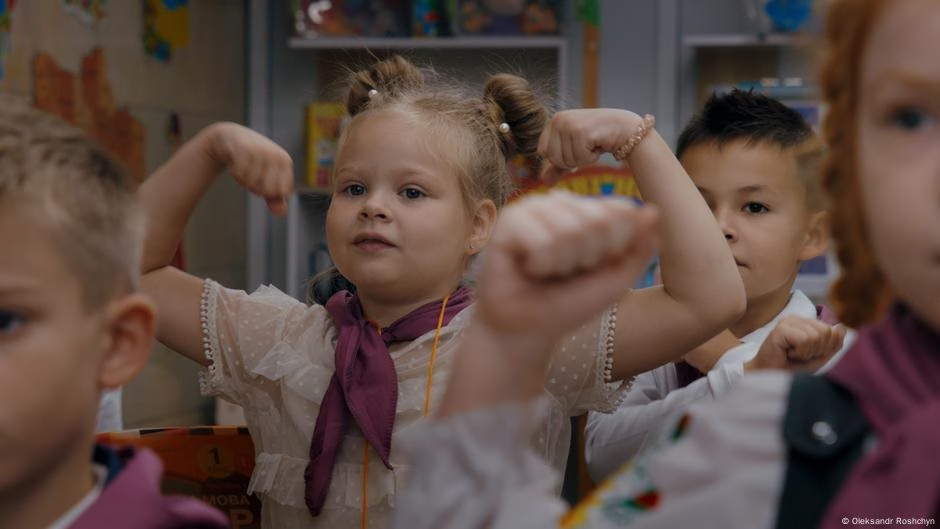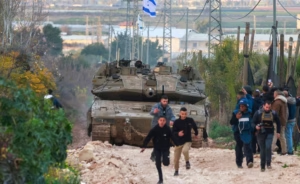Initially, it might appear as though this is just a group of young children attending school and learning English as a second language, performing repetitive exercises with words for common objects such as "ball!" and "doll!"
However, the lesson becomes more complex as the teacher instructs the children to shout "danger" whenever they identify an image of a toy rigged with an explosive device.
This exercise is not a game. It reflects the reality of Russian soldiers hiding bombs in toys and other everyday objects to harm civilians, in the ongoing conflict in Ukraine.
This practice is highlighted in the documentary "Timestamp" (originally titled "Strichka chasu"), which portrays the ongoing efforts of schools in Ukraine to remain functional during the conflict following Russia’s full-scale invasion in February 2022. The documentary was showcased in the Berlinale, the Berlin International Film Festival.
An observational documentary on the impact of war
Director Kateryna Gornostai captures the effects of war without showing any footage of the conflict. She refrains from using narration or commentary, instead presenting a collage of scenes from various classrooms in Ukraine, with on-screen captions indicating their location and proximity to the front lines.
The documentary oscillates between online classes and those conducted in unusual locations such as subway stations, with some schools partially damaged by bombings. Despite the challenges, teachers continue their lessons with enthusiasm. The film illustrates art, history, CPR training, drone piloting, and firearms safety, emphasizing the children’s resilience.
Russia’s targeted destruction of schools
As of recent reports from the United Nations, over 12,605 civilians have been killed in the conflict, with 343 educational facilities destroyed and 1,319 damaged since February 2022. Producer Zoya Lytvyn, while speaking at the Berlinale, highlighted that roughly one third of schools are operating physically, another third online due to the lack of bomb shelters or proximity to the front lines, and the remainder using a hybrid of in-person and remote teaching.
The documentary serves as a tribute to the resilience of Ukraine’s society and its teaching staff, emphasizing the importance of education not just as knowledge acquisition but as a means to preserve childhood and provide hope during these challenging times.
Filmmaker Kateryna Gornostai’s recent motherhood, right before the film’s premiere in Berlin, serves as a powerful symbol of hope amid the ongoing conflict.
[No video is embedded in this rewritten content.]








